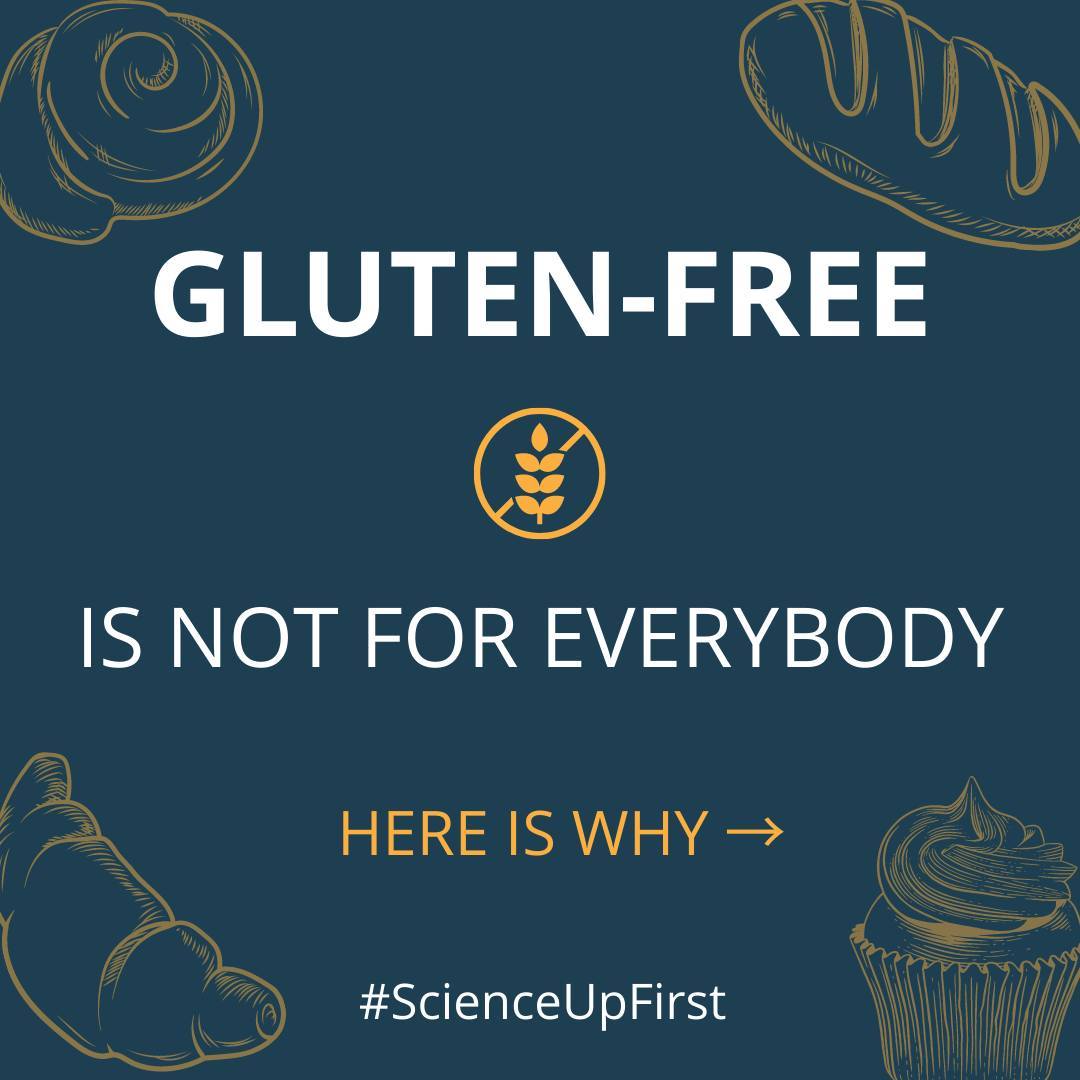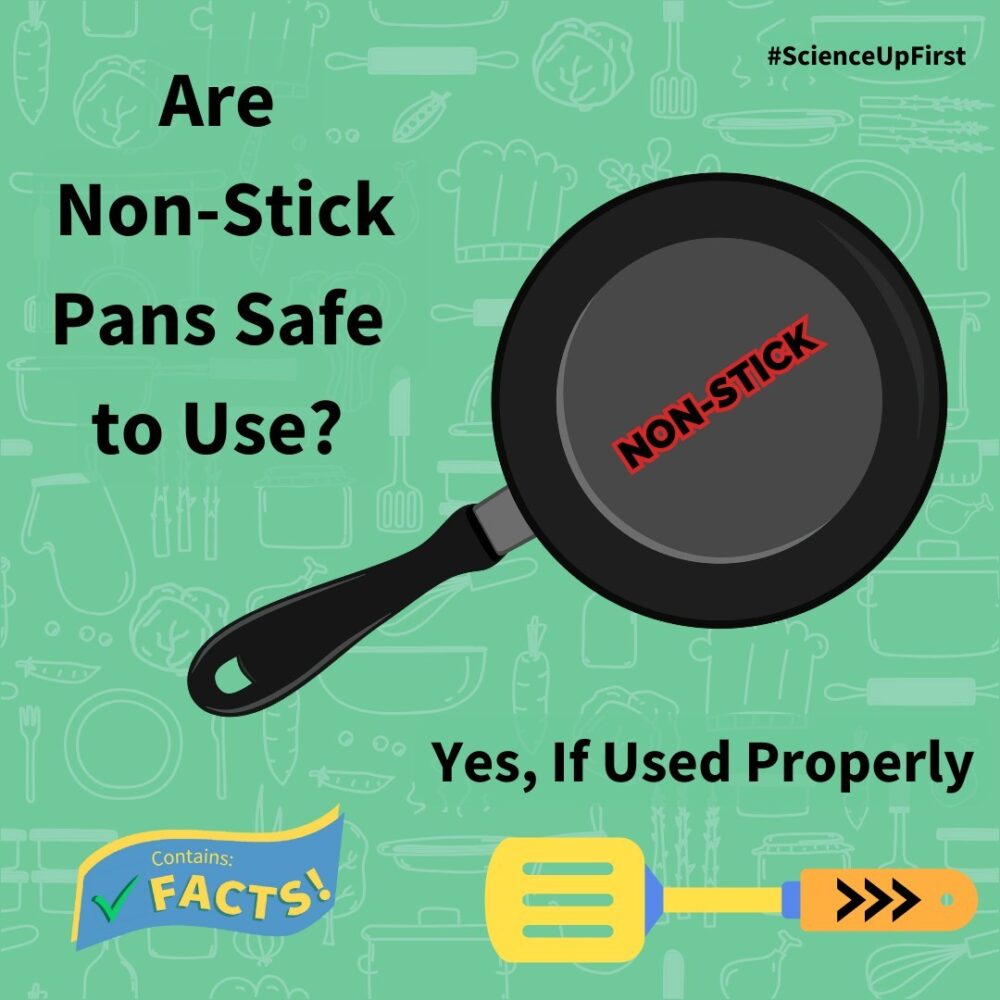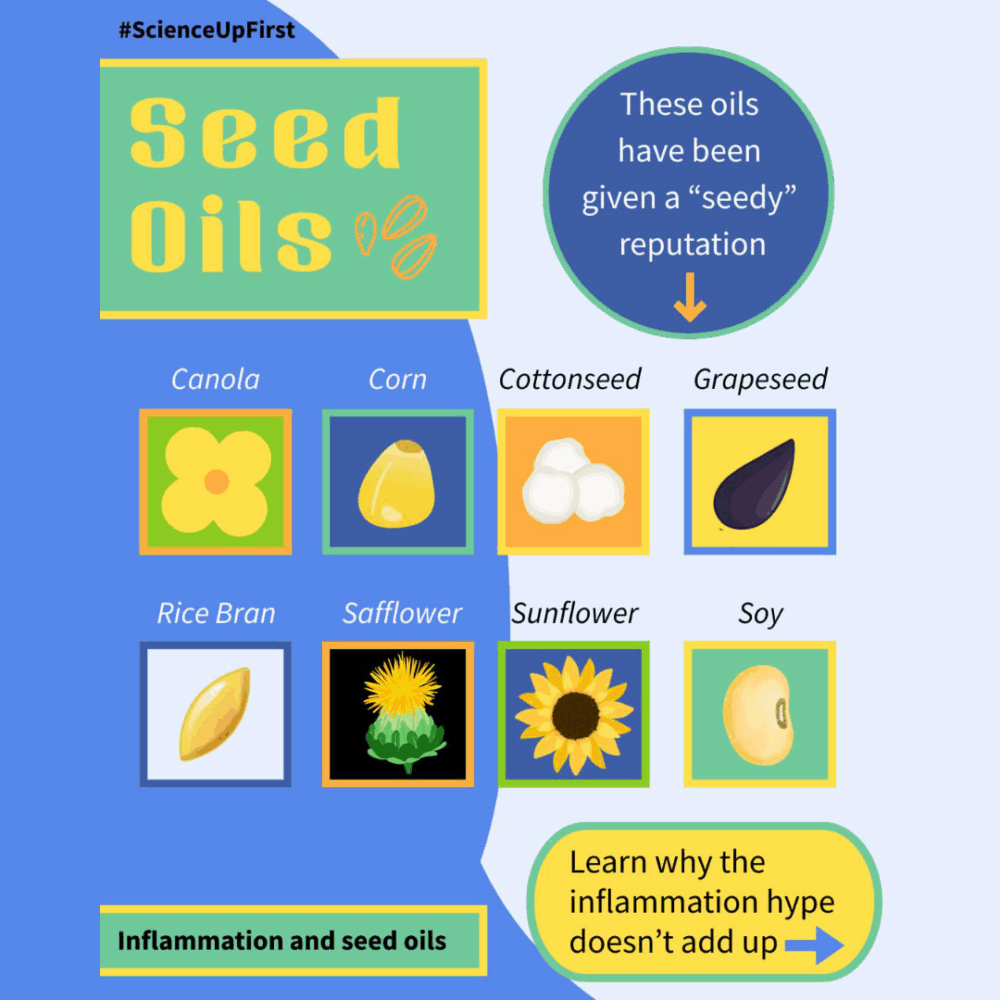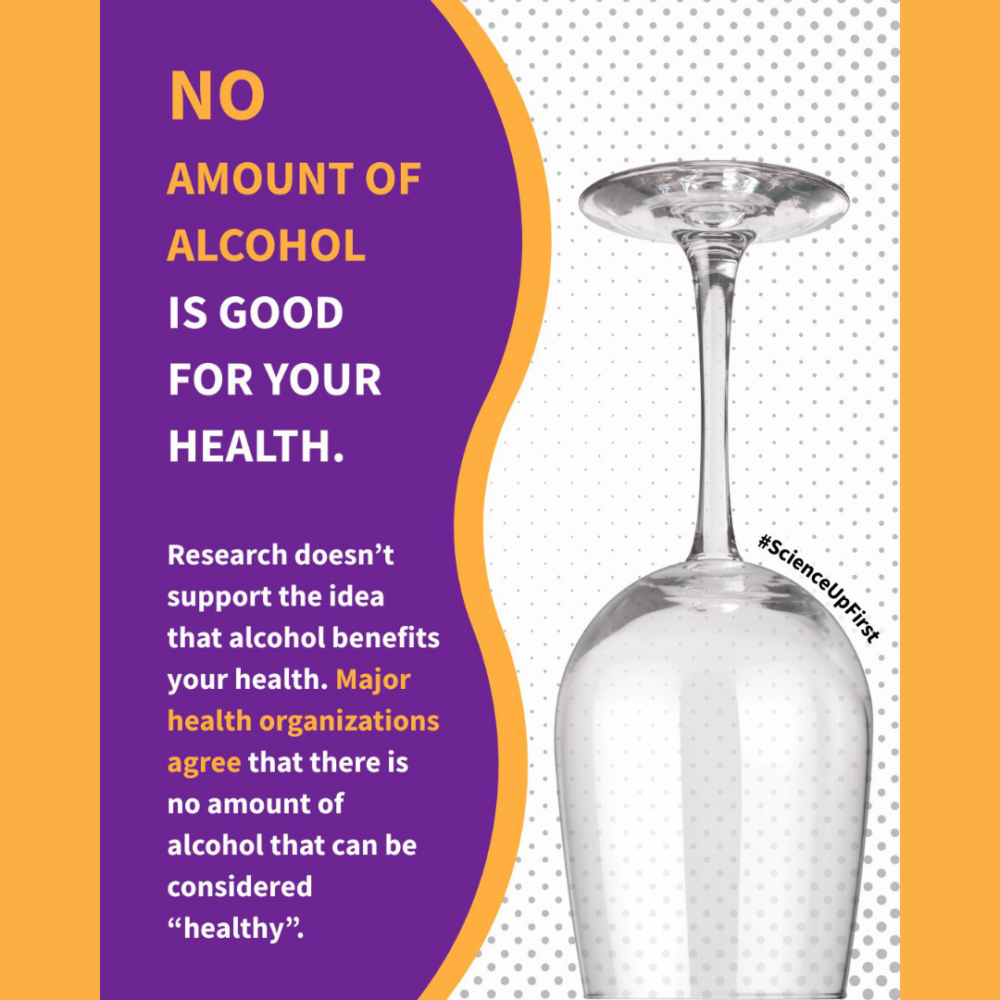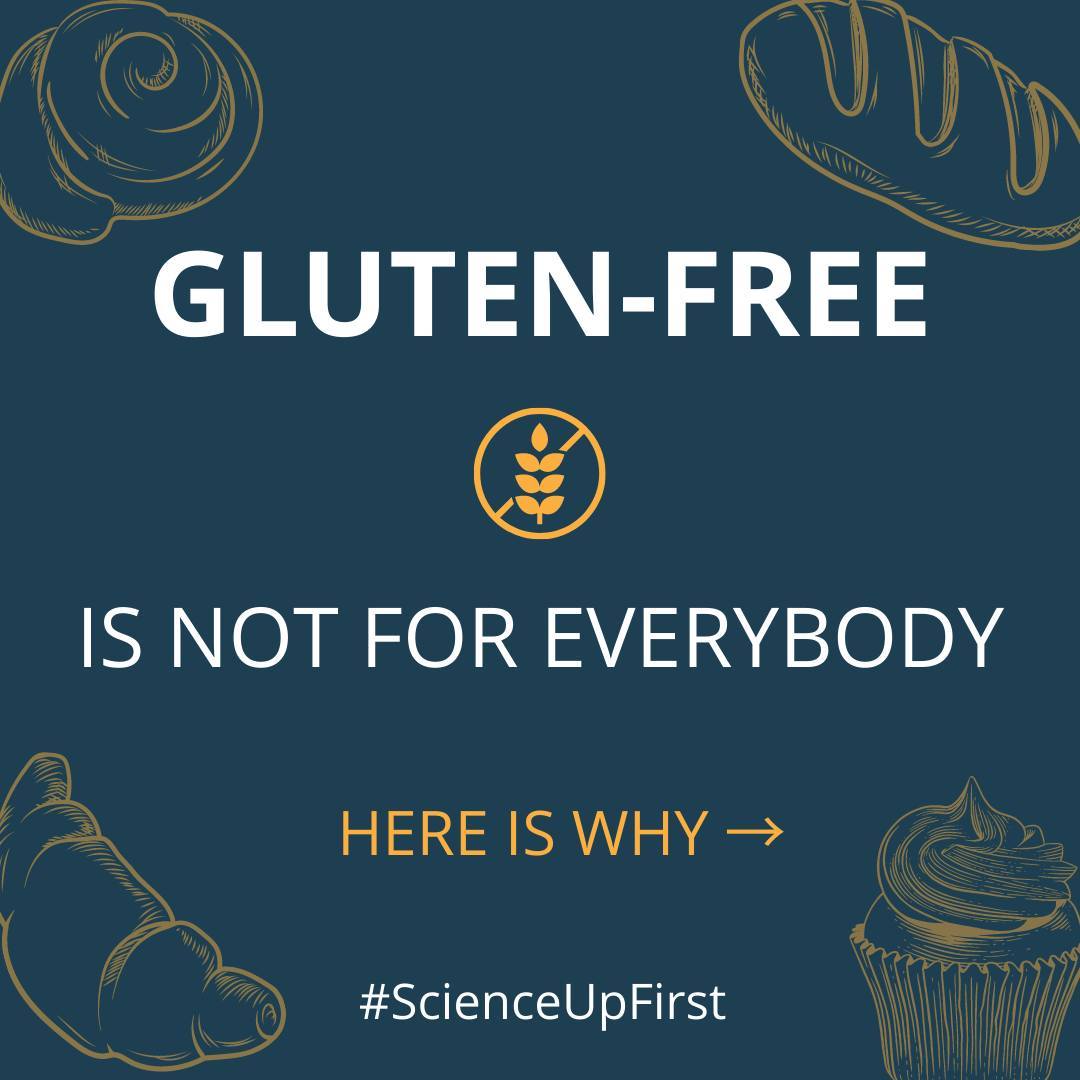
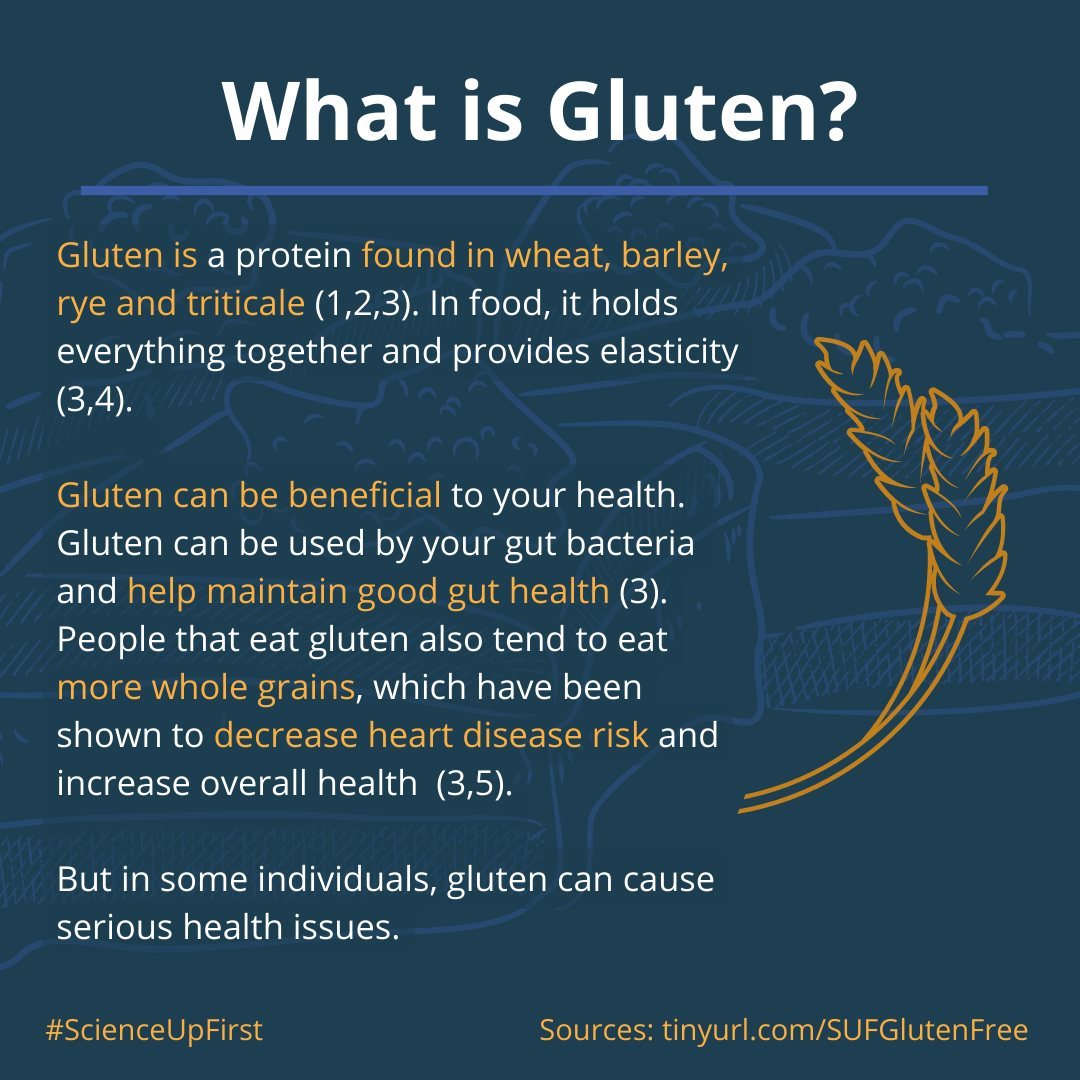
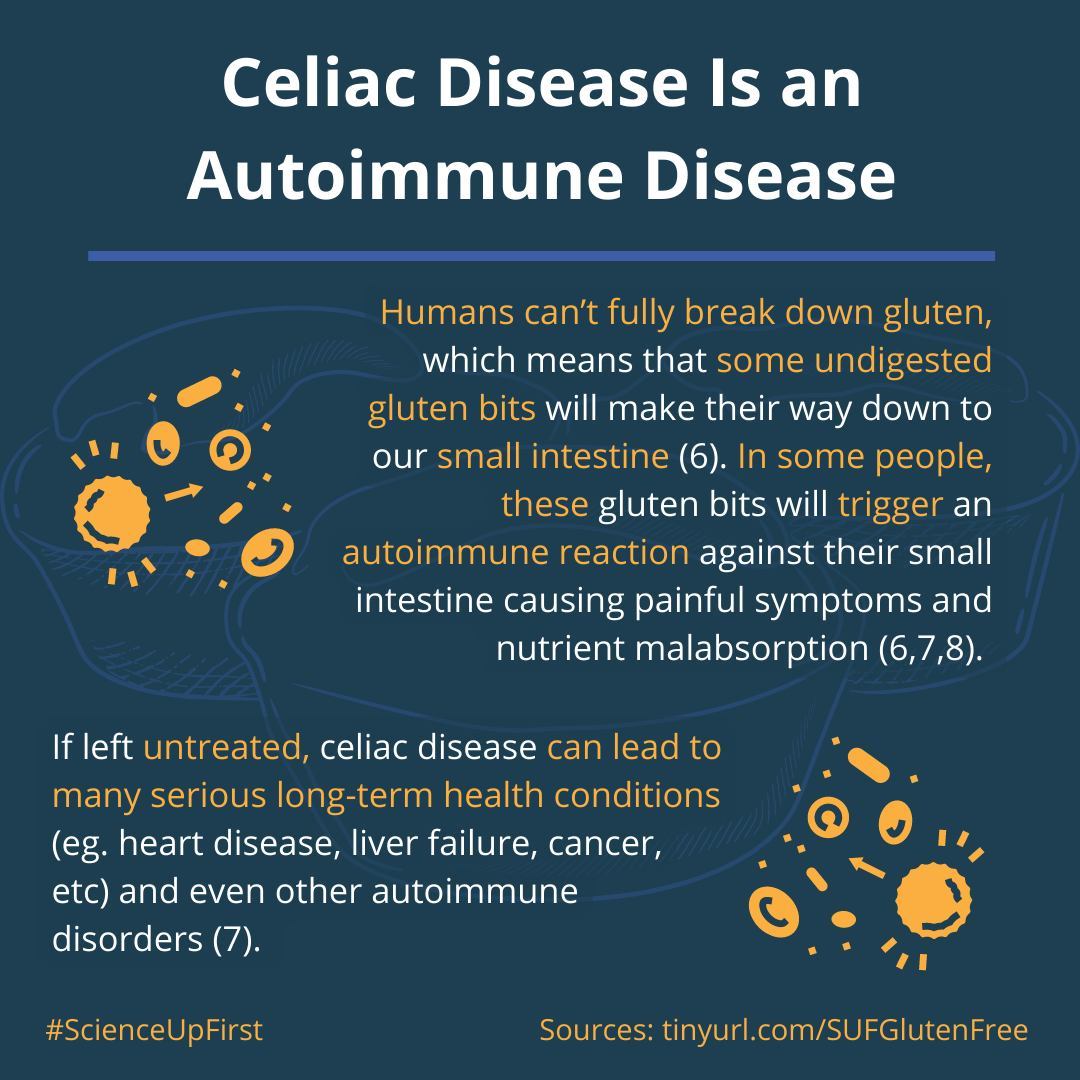
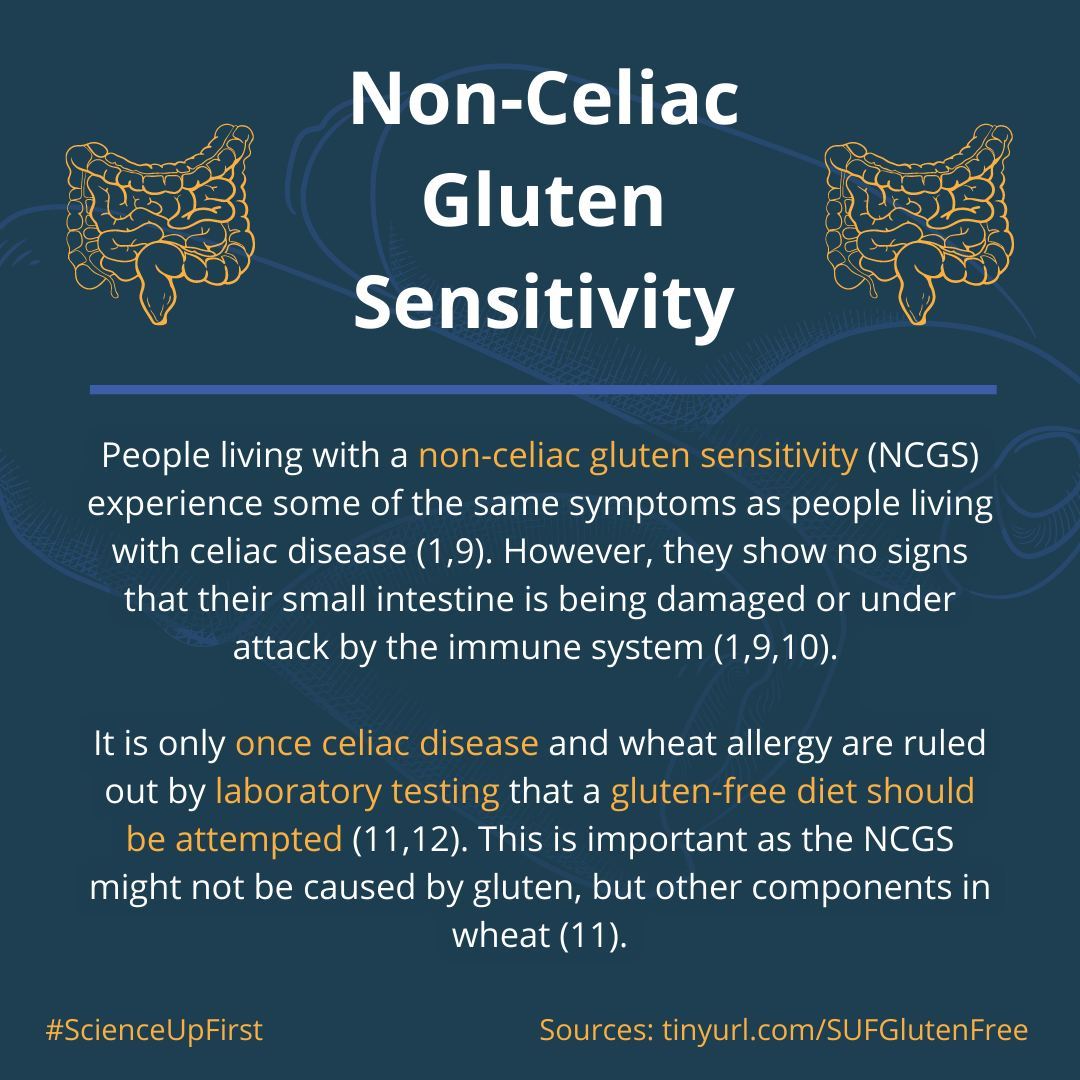
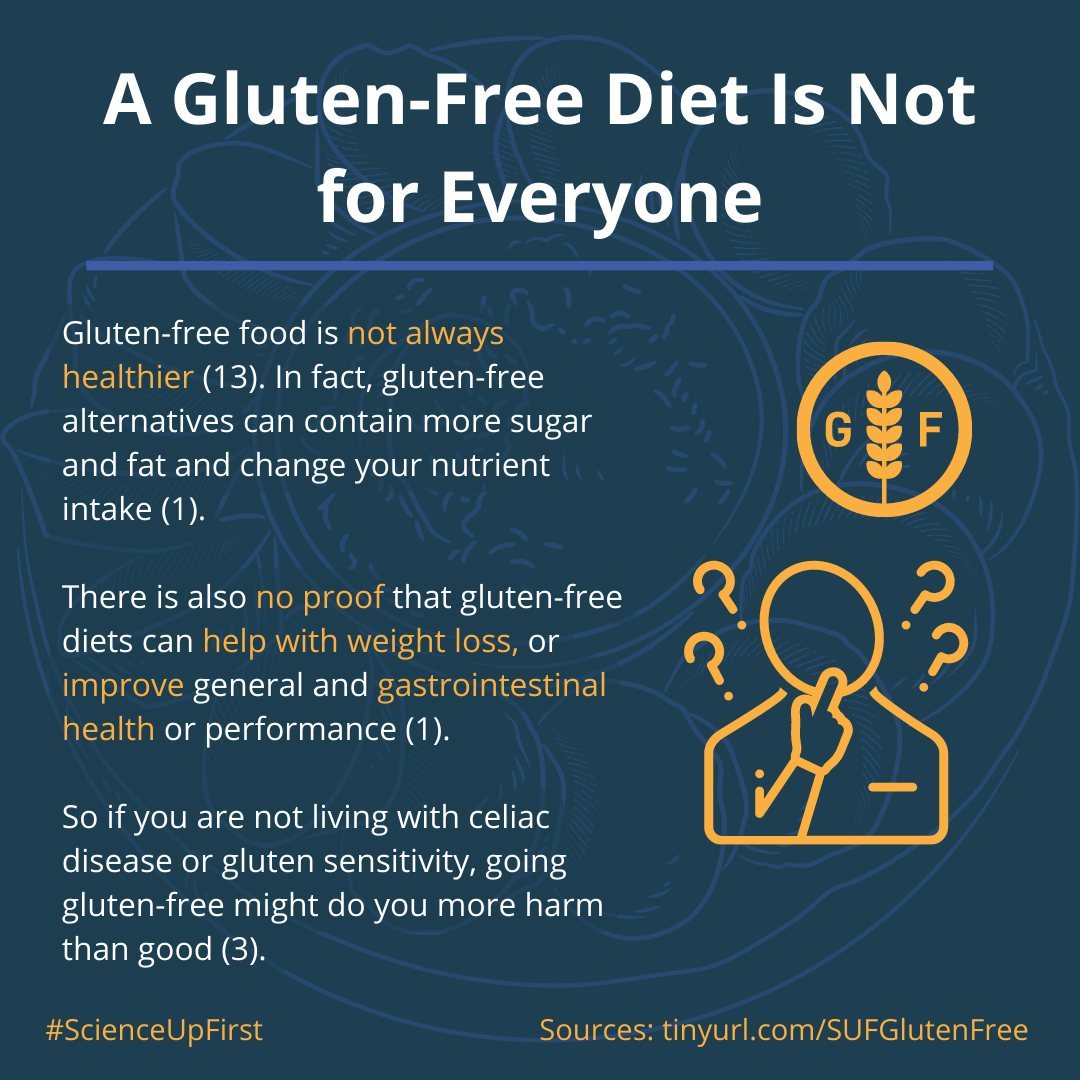
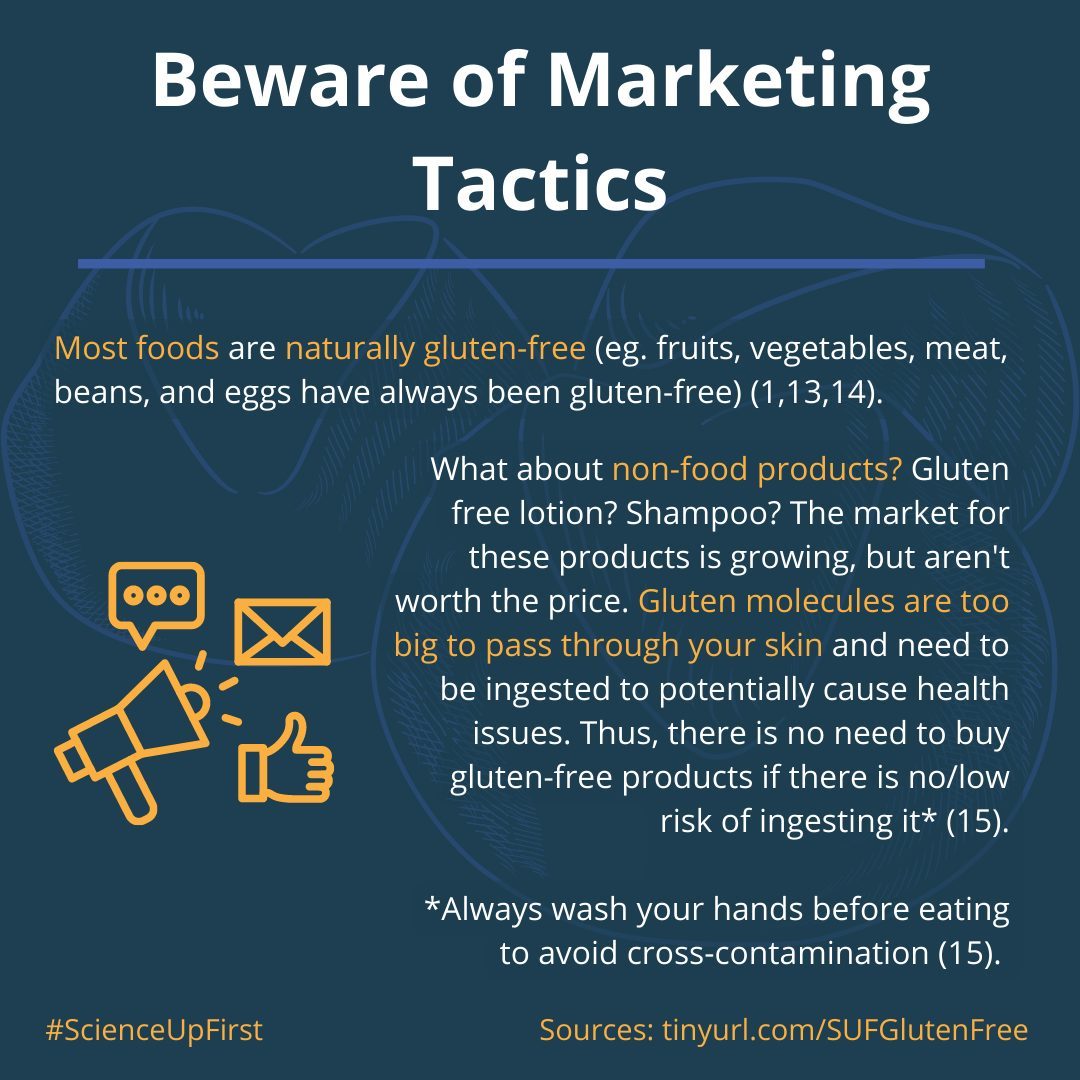
Is going gluten-free healthier? Not likely.
Like with any fad diet, fully eliminating any foods from your diet is not a good idea – unless you are living with celiac disease, a non-celiac gluten sensitivity, or any other gluten-related disorder*, avoiding gluten might do you more harm than good.
Celiac disease is an autoimmune disorder (i.e. when your body’s own immune system starts attacking itself (16)). For individuals living with celiac disease, gluten will trigger an attack on the lining of the small intestine (i.e. the villi) when ingested. The villi are very important for nutrient absorption; over time, their destruction can lead to malnourishment (7,8).
*These other gluten-related disorders might also require eliminating foods containing gluten
Gluten ataxia is an autoimmune disorder targeting the nervous system, thus causing problems with muscle control and movement (1,17).
Dermatitis herpetiformis (DH) is an autoimmune disorder targeting the skin (3,18). Most people with DH are also living with celiac disease, but not all that are living with celiac disease also have DH (18).
Wheat allergies differ from all the gluten-related disorders above as it is not an autoimmune reaction or a sensitivity, but an allergy to one or more proteins found in wheat (including gluten) (3).
Share our original Tweet!
Like with any fad diet, going gluten-free might do you more harm than good – unless you are living with a gluten-related disorder like celiac disease.#ScienceUpFirst #CeliacAwarenessMonth
[1/2] pic.twitter.com/OZVqw2BY73
— ScienceUpFirst | LaScienced’Abord (@ScienceUpFirst) June 1, 2023
View our original Instagram Post!
View this post on Instagram
- Gluten-free diet
- What is Gluten?
- Gluten: A Benefit or Harm to the Body?
- What Is Gluten?
- Whole Grains
- What Is Gluten and What Does It Do?
- What is Celiac Disease?
- Celiac Disease: Symptoms, Testing, Treatment & Research
- Non-Celiac Gluten Sensitivity
- Recent advances in understanding non-celiac gluten sensitivity
- Non-Celiac Gluten Sensitivity: How to Diagnose and Differentiate it from Celiac Disease | FR : Sensibilité au gluten non cœliaque : Comment la diagnostiquer et la distinguer de la maladie cœliaque
- Wheat & Gluten Allergy
- To Be or Not to Be: That is the Gluten-Free Marketing Question
- Gluten-Free Foods
- Are gluten-free skin and body products important for people with celiac disease?
- What Are Common Symptoms of Autoimmune Disease?
- Gluten Ataxia and Celiac Disease
- Dermatitis Herpetiformis

